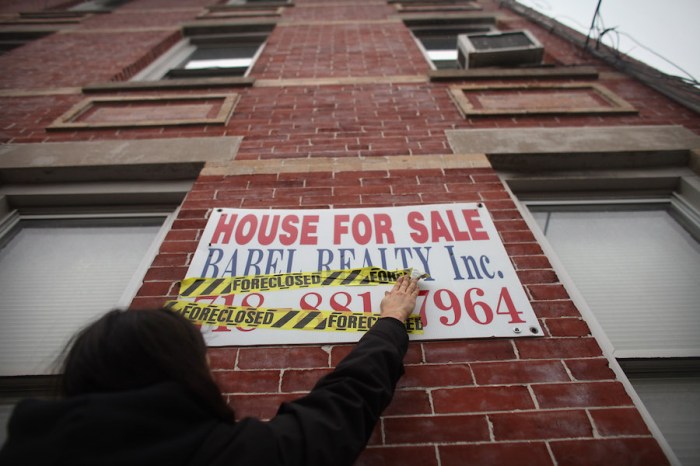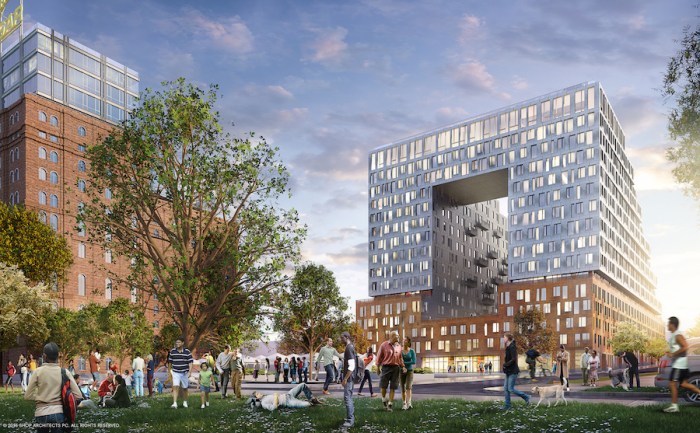New York City is looking to make sure its young people can thrive ahead after one recent report found that they are instead being held back and facing the hardest economy in the last 30 years.
City Comptroller Scott Stringer released a report Monday night detailing how millennials — which are defined as those born between 1985 and 1996 — got into a workforce during the toughest economy since the Great Depression and have seen large financial setbacks because of it. The report found that millennials earn about 20 percent less that the generation before them and are also finding jobs in low-wage industries which are suffering from declining wages.
RELATED: Millennial buyers settle into New York City real estate market “Millennials were applying for jobs in the most difficult economic climate since the GreatDepression and as a result, a growing number are now working in low-wage industries andearning less than their predecessors,” Stringer said. “This group of young people isconfronting unique economic challenges that their parents did not have to face. Everygeneration is expected to do better than the last, but too many Millennials are not getting a fairchance to make it in New York City.” According to the analysis, the population of young people in the city grew by 9 percent between 2000 and 2014 and are currently making up 19 percent of the city’s population.
The report shows that millennials are going to college at a growing rate, with 72 percent of all 23 to 29 years old living in the city having earned some college credit. However, once they enter the work force they are met with an unimpressive job market. Between 2000 and 2014 the number of workers who were employed in low-wage industries — which include retail, food service and hospitality — went up by 4 percentage points. During the same time period, those working in mid- and high-wage industries declined by 3 percentage points. Due to the decrease of good-paying jobs, the report found, millennials earned about 20 percent less in 2014 than those who entered the job market during the 1990s.
Job industries which are hiring the most young people are also seeing a large decline in wages, For example, the hospitality/food service and retail industry has given 91,000 of new jobs for young people but have seen wages go down by 16 percent from 2000 to 2014. The comptroller’s report also discovered that although a lot of millennials in the city are working these low paying jobs, some are not working at all — while many deal with high student debt.
According to the data, one in ten young people in the city are considered “idle,” meaning they are not in school, not working or caring for a child, even though the rate went up since 2000. And, across the city, young people owe about $14 billion in student debt “This generation is at a crossroads. They worked hard, got an education and then facedroadblocks to getting a good-paying job. It’s time for us to pay attention to the largestgeneration in New York City, and start to break down those barriers,” Stringer said.”We need to foster aneconomy here that helps young people get ahead, not one that holds them back.” RELATED:These are the most searched for jobs in NYC
The report however did find that a larger share of millennials — increasing from 39 percent in 2007 to 41 percent in 2014 — are moving out of their parents’ homes and are living on their own. Stringer concluded his analysis by giving recommendations to local and state government officials to “promote opportunity for young people.” The proposals include raising the minimum wage, supporting efforts to keep public universities affordable and reducing the issue of student debt; creating more affordable housing, and also adopting new way to approach criminal justice and rehabilitation to help those young people with criminal records. “Millennials are doing their part for New York City – they are politically involved, culturallyengaged, and highly motivated,” said Comptroller Stringer. “This generation is overcomingsetbacks and changing the way we work, live and communicate. Now it’s time for the rest of usto do our part and put policies in place that will help this powerful group settle down in NewYork City, start their careers, and raise families here, so our economy can continue to grow.”























